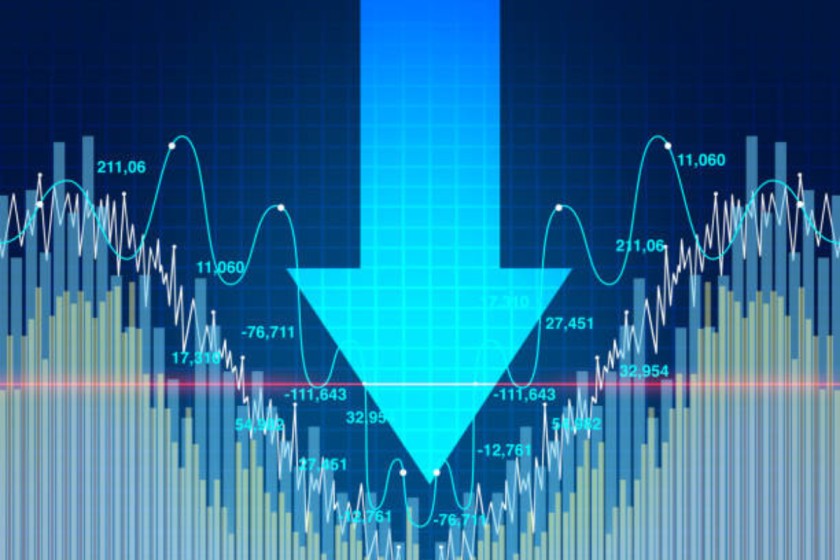- October 26, 2023
What economists misjudged regarding the great recession

While economists made mistakes during the Great Recession, it’s critical to recognize that they offer valuable insights too.
What do we know, and not know, about macroeconomics? My coauthor and I are currently revising our economics textbook — one of our decisions is to emphasize the Great Recession and the pandemic over the Great Depression — so I might be expected to have an answer to this question. Instead, standing on one foot, I would like to offer a short primer to guide us through future crises and downturns.
Let’s start with what we don’t know.
Economists do not, in general, know when business downturns will arrive. If there were reliable signals of a coming downturn, it would arrive immediately, as market actors would contract their plans accordingly, in the expectation of bad times to come. In that sense, there is not much of a predictive window to experience.
That is not a failing of any particular economic theory. Rather, economics as a whole has figured out that expectations are so crucial that business cycles are intrinsically difficult to predict.
Another thing we economists do not always know: which theory will apply when. Consider the recent experience with what has been called the “immaculate disinflation.”
Some economists, using aggregate demand models, expected that lowering inflation rates from 9 percent to between 2 percent and 4 percent would bring about a recession. While such a recession may yet happen, there is not much evidence of one so far.
Another (and smaller) group of economists argued that a disinflation effort can succeed only if it is truly credible. If market participants believe the central bank will “stay the course,” they will raise prices at a lower rate and not lay off many workers. Inflation rates will ease, and the economy will enjoy the proverbial “soft landing.” This “rational expectations” view had fallen into disfavour, but it had never been refuted. Score one point in its favour.
It is a perfectly legitimate criticism of macroeconomics to note that economists cannot agree (and arguably do not know) which model will hold. Still, we have a framework for analysing this problem: whether the disinflation will prove credible or not. Perhaps only the actual history, as it unfolds, can answer that question.
More generally, macroeconomics helps us ask better questions, and it helps us better understand outcomes when they arrive. It does not resolve the fundamental unpredictability of human history.
That is a better and deeper perspective than those who dismiss economics or macroeconomics altogether. I sometimes say that the best way to appreciate macroeconomics is to chat with someone who knows nothing about it.
Another episode frequently cited as evidence against economists is the Great Recession of 2007-2009. Economists did make some mistakes on that one — but they are not the ones you usually hear about.
When real estate prices started to slow down and then fall, many economists declared there was a real estate bubble. The theory quickly developed that the market crash was due to a real estate bubble bursting, followed by a sharp fall in aggregate demand, followed by a decline in employment and output.
The last part of that explanation is correct. In retrospect, however, it is not clear that the housing prices of 2006-2007 represented a bubble. By today’s metrics those prices appear prescient, if slightly premature. The market was suddenly realizing that a lot of real estate assets were going to be worth much more — and the recent evolution of real estate valuations seems to have confirmed that judgment.
In 2009, however — and following a lot of foreclosures and the emergence of troubled banks — the market was far from ready to accept that the high real estate prices had been justified. The market was too sceptical when it should have been less panicked. A lot of economists got this wrong too, along with many pundits. All of this made the resulting panic worse because the talk was so pessimistic about real estate valuations. Instead, the real problem was that the market had lost faith in a set of high real estate prices that has since been largely validated. Maybe not in Las Vegas and Orlando, but for the nation as a whole, most of all on the coasts.
Economists should have been less quick to judge what is or is not a bubble. The real-estate-bubble explanation appeared to be correct in the short run, but economists should have been more modest about their ability to second-guess the market. The good news is that, with hindsight, we can piece together what happened. Policymakers and market participants made a series of overlapping mistakes related to monetary policy, the shadow banking system and panic about real estate.
So, feel free to doubt macroeconomists — because, like most human beings, we are often wrong. But you should also acknowledge that we can still make useful contributions to your understanding of the world.
Tyler Cowen is a Bloomberg Opinion columnist, a professor of economics at George Mason University and host of the Marginal Revolution blog.
Views are personal and do not represent the stand of this publication.
Credit: Bloomberg
